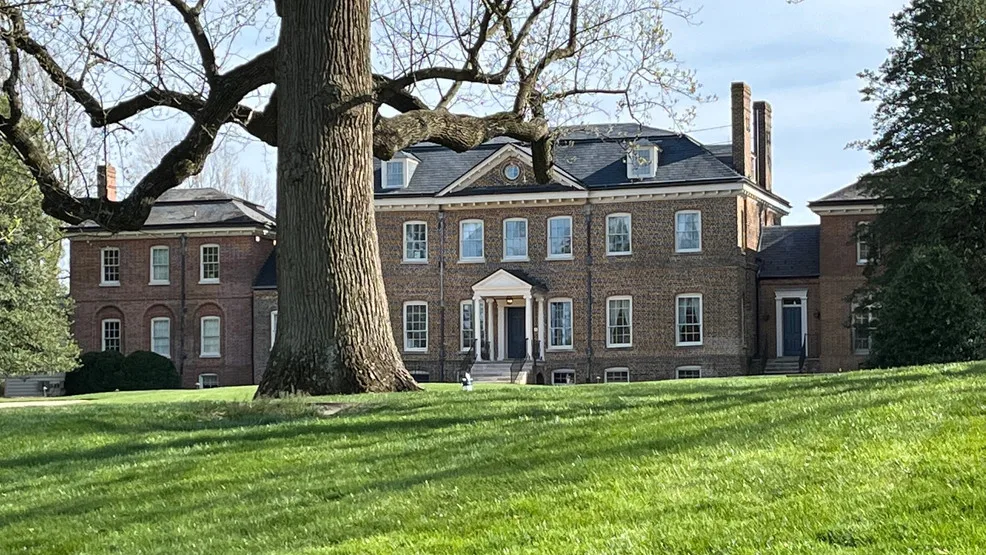
PRINCE GEORGE’S COUNTY, Md. (7News) — One need not look far in Prince George’s County to find reminders that enslaved people toiled there.
The Belair Mansion in Bowie, Maryland, was the site of the Belair Plantation, a horse farm entirely dependent on generations of slave labor from 1745 until the Emancipation Proclamation in 1863. There, a newspaper notice shows 21 slaves were once sold along with the building and grounds.
“The legacy of slavery is not a distant memory,” said Baltimore City Delegate Aletheia McCaskill.
McCaskill is leading the push for reparations in the Maryland Legislature. On Thursday, she traveled to Prince George’s County to collect the full support of the Prince George’s County Council for her reparations bill.
“Reparations for the descendants of the enslaved are not about handouts or empty gestures,” McCaskill said. “They’re about recognizing the unpaid debts owed to the descendants of those who suffered the yoke of slavery.”
Prince George’s Council Member Wanika Fisher has introduced a resolution with unanimous support from the rest of the Council which states that the Prince George’s County Government wants the legislature to pass a bill setting up a reparations commission.
READ| Maryland considering reparations bill that would raise taxes for ‘reinvestment’ fund
“There’s not one simple solution that’s going to make people whole,” Fisher said. “The bill has many recommendations. Whether it’s free college access, cash payment for lost wages, equity loans.”
Figuring out who qualifies is among the first challenges — the bill is aimed at the descendants only of those enslaved in Maryland.
Josephine Mourning of the Southern Christian Leadership Conference (SCLC), who supports both the resolution and the bill, said modern genetic testing is one answer.
READ| First, apologies. Next, payouts? How reparations address history of slavery in US
“I mean if I can send off and find out who all of my relatives are then I don’t feel we should have a problem figuring out who are actually descendants of slaves here in Maryland,” Mourning argued.
The reparations commission bill has failed each year in the General Assembly since its introduction in 2020, and it is not moving this year either. McCaskill, Fisher and others are saying that their focus now is on building support for next year’s legislative session.

